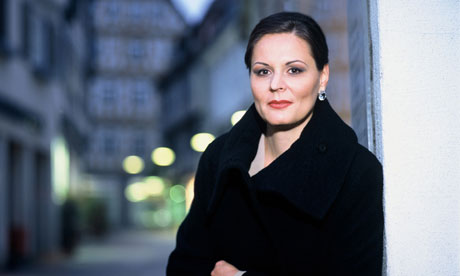
There are over 90 songs here, all but seven dating from the first 15 years of Schoenberg's composing life. Seven of the first 15 works to which he gave opus numbers were collections of songs with piano, and the greatest of them, the 15 settings of Stefan George that make up The Book of the Hanging Gardens Op 15, effectively signalled the end of his career as a song composer. He returned to the medium only briefly in his serial years for the Four German Folksongs of 1929 and the Three Songs Op 48, composed four years later. Taken together with the songs from the 1890s that were only published after Schoenberg's death, they offer a minutely detailed guide to the evolution of his early musical language, from its beginnings in the blameless world of German romanticism to the more heavily chromatic, post-Wagnerian collections of the early opus numbers, and on to the freely atonal world that The Book of the Hanging Gardens inhabits so compellingly.
This meticulously compiled and documented collection, which also takes in the set of Brettl Lieder, the cabaret songs that Schoenberg composed in Vienna in 1901, also includes one real curiosity. The settings of Jens Peters Jakobsen that make up Gurrelieder are perhaps the most sumptuous of all 20th-century choral works, but they began life in the first years of the 20th century as a song cycle for soprano and tenor, with the mezzo setting of the Song of the Wood Dove added soon afterwards. Schoenberg completed this version in 1903, eight years before he began work on the orchestral score that we know today. Lasting just under an hour, it's a very different work from the later one, of course, but the pressurised vocal writing constantly suggests something larger-scale and more grandiose bursting to express itself, as Schoenberg obviously realised.
The performances throughout the set, all of them accompanied by pianist Urs Liska, vary from the thoroughly effective to the very fine indeed, with the baritone Konrad Jarnot particularly impressive. Jarnot gets to sing The Book of the Hanging Gardens, and his performance is by no means outclassed by the superb recent version from Christian Gerhaher on Sony. But it's the sheer comprehensiveness of this set that makes it so fascinating; many of the songs in it would be hard to source elsewhere.

